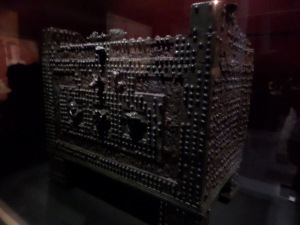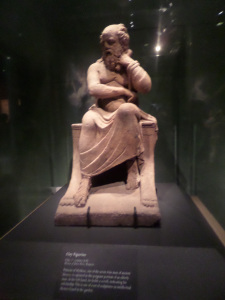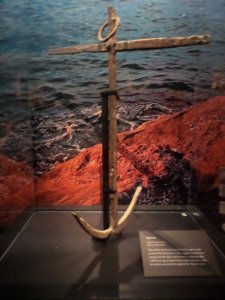From Pompeii To The Endeavour
Visited the California Science Center yesterday to see the Pompeii exhibit.
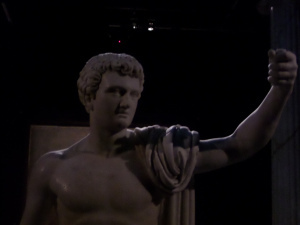 The Ancient Roman artifacts were very elegant and striking, but the last room with its casts of dead men, women, and children left me a bit shaken. The physical attitudes of a group of three people who expired on a set of stairs, the last apparently huddled behind the legs of another, and that of a young pregnant woman turned on her face, one hand to her belly…. I couldn’t help but project myself into the lives of those long deceased citizens facing what must have amounted to Armageddon. With no word for volcano in the ancient Latin language and no mass communications lines to inform them of natural phenomena they did not personally have knowledge of, what must they have experienced on that final terrible day when the ambivalent mountain in whose shadow they’d lived their lives suddenly burst open and vomited fire and hot ash into the sky? It must have been horrifying; mind-splitting. They must have died in abject terror; what an ant suddenly exposed to focus sunlight through some unfathomable child’s magnifying glass must experience – to have your life choked off by something completely beyond your comprehension.
The Ancient Roman artifacts were very elegant and striking, but the last room with its casts of dead men, women, and children left me a bit shaken. The physical attitudes of a group of three people who expired on a set of stairs, the last apparently huddled behind the legs of another, and that of a young pregnant woman turned on her face, one hand to her belly…. I couldn’t help but project myself into the lives of those long deceased citizens facing what must have amounted to Armageddon. With no word for volcano in the ancient Latin language and no mass communications lines to inform them of natural phenomena they did not personally have knowledge of, what must they have experienced on that final terrible day when the ambivalent mountain in whose shadow they’d lived their lives suddenly burst open and vomited fire and hot ash into the sky? It must have been horrifying; mind-splitting. They must have died in abject terror; what an ant suddenly exposed to focus sunlight through some unfathomable child’s magnifying glass must experience – to have your life choked off by something completely beyond your comprehension.
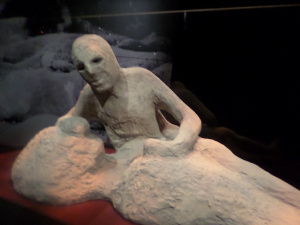 We ended the visit with a look at the space shuttle Endeavour, a really awe-inspiring sight in its own right. When you walk in the shuttle is like an immense bird only a few feet overhead, a bit battered and weathered from its journies.
We ended the visit with a look at the space shuttle Endeavour, a really awe-inspiring sight in its own right. When you walk in the shuttle is like an immense bird only a few feet overhead, a bit battered and weathered from its journies.
The myriad heat panels that cover it are very like an intricate mosaic from the floor of one of Pompeii’s atriums, perfectly interlocked shingles whose individuality are only perceivable upon close inspection. Nearly two thousand years in the span of an hour or two. I couldn’t look at the two without thinking that one was the pinnacle of human achievement and the other one of the deepest troughs of human tragedy. Did the children of Pompeii, who probably didn’t understand the volcanic eruption that killed them ever conceive of the world 2000 years in the future in their daydreams?
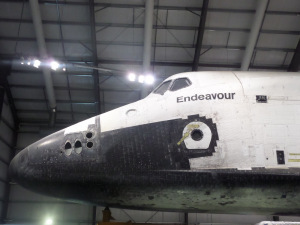 People live and die, new people are born. Do we feel cheated when we expire that we won’t see the progress of humanity? Is every individual a single piece in the advancement of all of humankind? The shuttle doesn’t mourn the loss of one or two heat tiles, and the artisans of Pompeii did not abandon their portraits in the face of a handful of broken tesserae.
People live and die, new people are born. Do we feel cheated when we expire that we won’t see the progress of humanity? Is every individual a single piece in the advancement of all of humankind? The shuttle doesn’t mourn the loss of one or two heat tiles, and the artisans of Pompeii did not abandon their portraits in the face of a handful of broken tesserae.
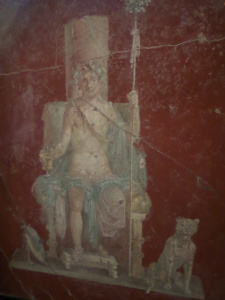
Dionysus (Bacchus) Enthroned
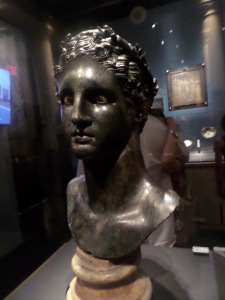
Ptolemy II
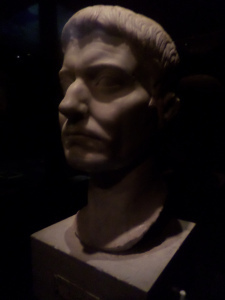
Unidentified bust of a forgotten Roman
Bit depressing I guess, but it was kind of an emotional seesaw to go from sorrow to elation 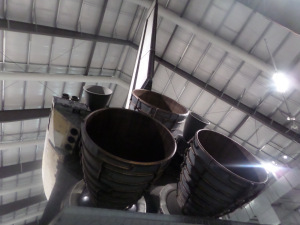
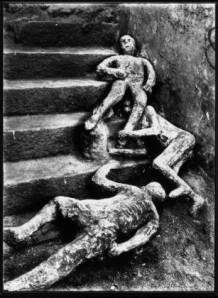 that quickly.
that quickly.
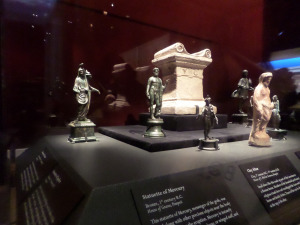
Household Lare



